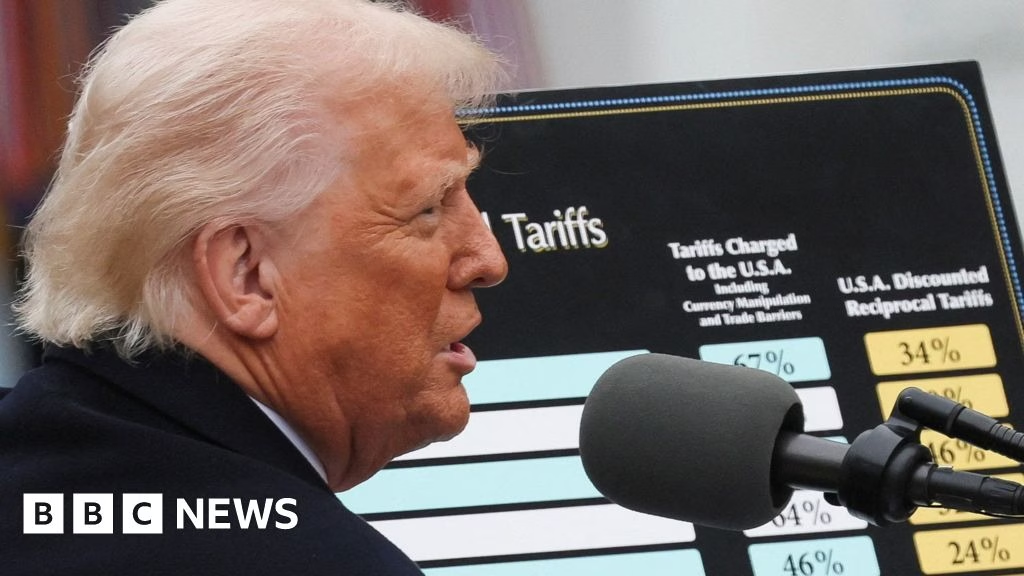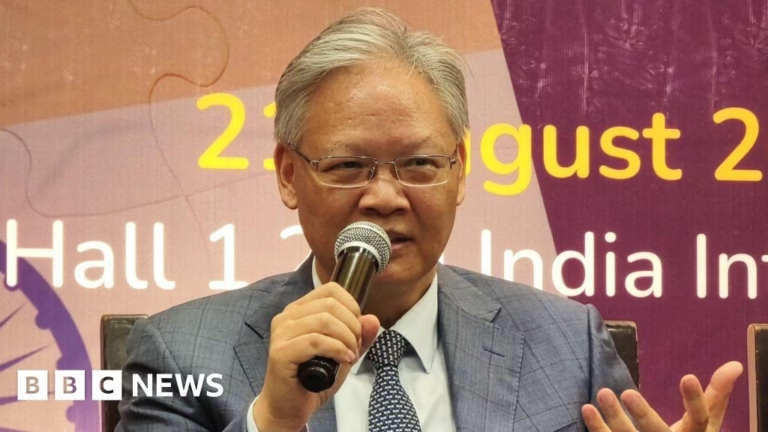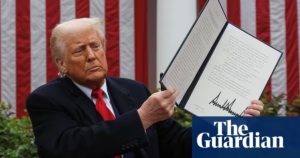<
div id=””>
Donald Trump’s politics have shifted considerably over his time in the public sphere. However, one thing he has remained consistent on since the 1980s is his belief that tariffs are an effective means of boosting the US economy.
Now, he is staking his presidency on the belief that he is right.
At his Rose Garden event at the White House, surrounded by friends, conservative politicians, and cabinet secretaries, Trump announced sweeping new tariffs on a broad range of countries – allies, competitors, and adversaries alike.
In a speech that combined celebration and self-congratulation, often interrupted by applause from the crowd, the president recalled his long-standing support for tariffs, as well as his early criticism of free trade agreements like Nafta and the World Trade Organization.
The president acknowledged that he will face opposition in the coming days from “globalists” and “special interests,” but he urged Americans to trust his instincts.
“Never forget, every prediction our opponents made about trade over the last 30 years has been proven totally wrong,” he said.
Now, in a second term where he is surrounded by like-minded advisers and is the dominant force in a Republican Party that controls both chambers of Congress, Trump is in a position to turn his vision of a new America-focused trade policy into reality. These policies, he said, had made the United States into a wealthy nation more than a century ago and would again.
“For years, hardworking American citizens were forced to sit on the sidelines as other nations got rich and powerful, much of it at our expense,” he said. “With today’s action, we are finally going to be able to make America great again – greater than ever before.”
It is still an enormous risk for this president to take.
Economists of all stripes warn that these massive tariffs – 53% on China, 20% on the European Union and South Korea, with a 10% baseline on all nations – will be passed along to American consumers, raising prices and threatening a global recession.
Ken Roggoff, the former chief economist at the International Monetary Fund, predicted that the chances of the US, the world’s largest economy, falling into recession had risen to 50% on the back of this announcement.
“He just dropped a nuclear bomb on the global trading system,” Mr Roggoff told the BBC World Service, adding that the consequences for this level of taxes on imports into the US “is just mind-boggling.”
/live(ab62b170-102d-11f0-8998-f7f6dbcc77d3).webp) Shutterstock
Shutterstock<
div data-component=”text-block” class=”sc-18fde0d6-0 dlWCEZ”>
Trump’s move also risks escalating a trade war with other countries and alienating allies that America has otherwise tried to strengthen ties with. The US, for instance, sees Japan and South Korea as a bulwark against Chinese expansionist ambitions. But those three countries recently announced that they would work together to respond to America’s trade policies.
<p class="sc-eb7bd5f6-0 fezwLZ">If Trump is successful, however, he would fundamentally reshape a global economic order that America had originally helped to construct from the ashes of World War 2. He promises that this will rebuild American manufacturing, create new sources of revenue, and make America more self-reliant and insulated from the kind of global supply chain shocks that wreaked havoc on the US during the Covid pandemic.</p>
<p class="sc-eb7bd5f6-0 fezwLZ">It's a tall order – and one that many believe to be highly unrealistic. But for a








